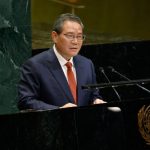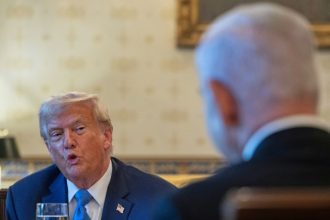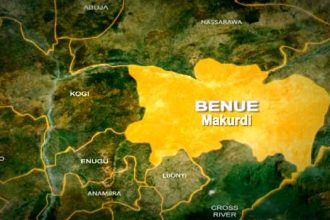A shroud of secrecy has surrounded the motive behind the FBI raid and firing of a Chinese professor at Indiana University earlier this year. Now, new unsealed documents reveal the FBI was looking into whether the cybersecurity researcher, who lived in Bloomington and Carmel, misused federal research grants.
In late March, FBI and Department of Homeland Security agents were seen searching and carrying boxes out of XiaoFeng Wang’s homes. That same day IU fired him. Neither the government nor the university provided any reason for their actions.
The U.S. Government fought to keep the documents sealed, arguing that releasing them could impede the investigation and hurt the reputations of those involved. However, Riana Pfefferkor, an attorney and policy fellow at Stanford University, prevailed in the Indiana Southern District Court on Oct. 3 to unseal the search warrant applications for his Bloomington and Carmel homes.
Federal agents were seeking records related to federal crimes of false statements, theft or bribery concerning programs receiving federal funds and wire fraud.
The search warrant application included no potential national security threats, and Pfefferkor described the potential violations listed as “milktoast” charges.
The documents do not mention Nianli Ma, who lost her job as an IU Libraries analyst, earlier in the same week.
No charges have been filed against Wang as of Oct. 6. Neither he nor his wife are facing deportation proceedings.
Wang worked at IU for over two decades and was a tenured professor and associate dean for research before he was fired, according to a now-taken-down IU biography. In 2022, he was the lead researcher on projects totalling nearly $23 million from funders such as the National Science Foundation, National Institutes of Health and the Institute of Information Engineering at the Chinese Academy of Sciences.
Wang’s attorney declined to comment on October 6.
The warrant application listed grant funding applications, submissions to the National Science Foundation, and communications related to his research as potential records. Agents also searched for evidence of a conspiracy or plan to commit a crime related to grant funding.
On March 28, federal agents seized 42 items, including three cell phones, two laptops, two hard drives, passports and immigration documents. They also took receipts, paperwork, notebooks, documents and shredded paper.
The court did not approve unsealing the affidavits establishing probable cause and leading to the search warrant’s approval. However, U.S. District Judge Tanya Walton Pratt, who was appointed by former President Barack Obama, said the government must report the status of the investigation within 90 days from October 3. At that point she will decide when and if those documents can be released.
IU has not provided the reason for Wang’s termination, but the Herald Times reported the university was investigating him in the weeks prior for academic misconduct. Alex Tanford, the leader of an IU faculty advocacy group, told the HT that Wang told him the university was investigating an anonymous complaint that alleged he was mislabeled as the principal investigator for a grant and failed to disclose co-authors in research.
Technology magazine WIRED reported that the university began investigating Wang in December regarding unreported research funding from China. Tanford told WIRED the potential charges seemed “trivial” for failing to properly disclose grant information.
Disclosed documents a “complete victory”
Six months ago, Pfefferkor filed to unseal the search warrant documents because she felt the public had a right to know after the case “weirded out” many in the cybersecurity field, she told the IndyStar on Oct. 6. The release of these records were overdue in her opinion as speculation swirled around the case, including some asking whether Wang was targeted for being Chinese.
IU computer science faculty condemned Wang’s firing and called on Provost Rahul Shrivastav to reinstate him. IU’s chapter of the American Association of University Professors said the university broke protocol when it did not give him a required notice and a hearing before the Faculty Board of Review.
Wang and his family have said very little publicly, but his son Luke Wang explained on a GoFundMe for legal and living expenses that the situation has taken a mental toll on the whole family.
“Indiana University terminated both my father and my mother (who has no knowledge of my father’s research) without any explanation or due process and the FBI raided our home, tore through our possessions, and crushed the dream that my father worked so hard to build,” he said. “We still believe in that and are determined to fight for my father’s innocence and for the broader academic and research community.”
The USA TODAY Network – Indiana’s coverage of First Amendment issues is funded through a collaboration between the Freedom Forum and Journalism Funding Partners.
Have a story to tell? Reach Cate Charron by email at ccharron@indystar.com, on X at @CateCharron or Signal at @cate.charron.28.
This article originally appeared on Indianapolis Star: New information unsealed about FBI raid of fired Chinese IU professor









